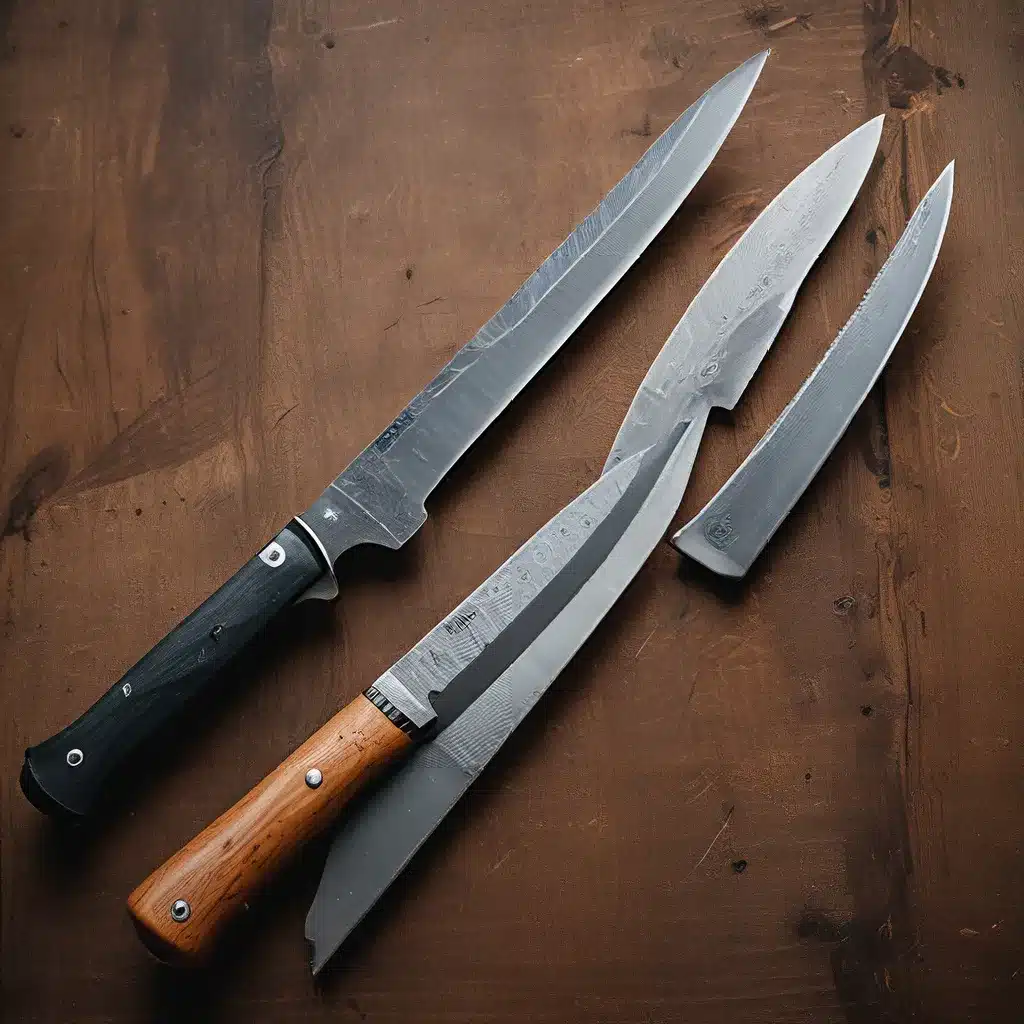
I don’t know about you, but when I think about my trusty knife, I can’t help but feel a sense of connection to the rich history and cultural significance of these everyday tools. As someone who values learning and growth, I’ve always been fascinated by the ways in which knives have shaped and been shaped by human civilization. Let’s dive in and explore this intriguing topic together.
Knives: From Utilitarian Tools to Cultural Icons
It’s incredible to consider that the humble knife has been a part of our lives for millennia. From the earliest stone blades used by our ancestors for hunting and survival, to the meticulously crafted culinary knives we use in our kitchens today, these tools have evolved alongside us, becoming intertwined with our cultural identities.
One of the most striking aspects of the knife’s cultural significance is its role in various religious and ceremonial practices. In many cultures, knives have been imbued with sacred meaning, used in rituals and rites of passage. The Maori people of New Zealand, for instance, have a rich tradition of carving intricate designs on their knives, known as taiaha, which serve as symbols of power and status within their communities.
Similarly, the Japanese samurai were renowned for their masterfully crafted swords, which were not only formidable weapons but also representations of the warrior’s honor, discipline, and spiritual connection to the blade. Even in our modern, industrialized world, the sushi knife, or yanagi-ba, has become an iconic symbol of Japanese culinary culture, with its distinctive shape and precise cutting abilities.
The Artistry of Knife-Making
But knives aren’t just functional tools; they can also be works of art in their own right. Master knifemakers around the world have dedicated their lives to perfecting the craft, creating one-of-a-kind blades that are as much a joy to behold as they are to use.
Take, for example, the knives crafted by the skilled artisans at Herman Knives. Each blade is meticulously forged and tempered, with intricate patterns and textures that showcase the maker’s attention to detail and commitment to quality. These knives are more than just tools; they are extensions of the knifemaker’s creative vision, imbued with a sense of history and cultural heritage.
Interestingly, the process of sharpening a knife can also be seen as a form of artistry. As Britt Andreatta notes in her LinkedIn post, “Just like a chef needs a sharp knife to do his or her best work, I need to keep my knife sharp as well. We all rely on tools to do our jobs well.” The act of carefully honing and maintaining the edge of a blade requires a delicate touch and an understanding of the materials involved.
Knives in Pop Culture and the Collective Imagination
Beyond their practical and cultural significance, knives have also captured the public’s imagination in various forms of popular culture. From the iconic Bowie knife made famous by frontier legend Jim Bowie, to the sleek, futuristic blades wielded by characters in science fiction movies, knives have become embedded in our collective consciousness as symbols of power, danger, and adventure.
Cody Lundin, the renowned survival expert and author, has even gone so far as to say that “a good knife is one of the most important tools you can have.” In his writings, he explores the multifaceted role of knives in outdoor survival situations, highlighting their utility as tools for cutting, carving, and even self-defense.
Sharpening Our Perspectives
As I delve deeper into the cultural significance of knives, I can’t help but be struck by the parallels between the act of sharpening a blade and the process of personal growth and development. Britt Andreatta’s insight that “sharpening your knife will not only help you perform at your best, it will also leave you feeling energized and engaged” resonates deeply with me.
Just as a dull knife becomes less effective at its intended tasks, I believe that we too can become dulled by the routines and distractions of everyday life. By taking the time to “sharpen our perspectives,” to learn, grow, and challenge ourselves, we can unlock new possibilities and become our best selves.
It’s a never-ending journey, to be sure, but one that I find deeply rewarding. Whether it’s exploring the rich history of knives, discovering the artistry of knifemaking, or simply taking the time to hone our own skills and knowledge, the act of sharpening our minds can be just as transformative as sharpening a physical blade.
So, the next time you pick up your favorite knife, I encourage you to pause and consider the cultural significance and personal meaning it holds for you. Who knows – you might just find that the act of sharpening your knife can also sharpen your perspective on life.


